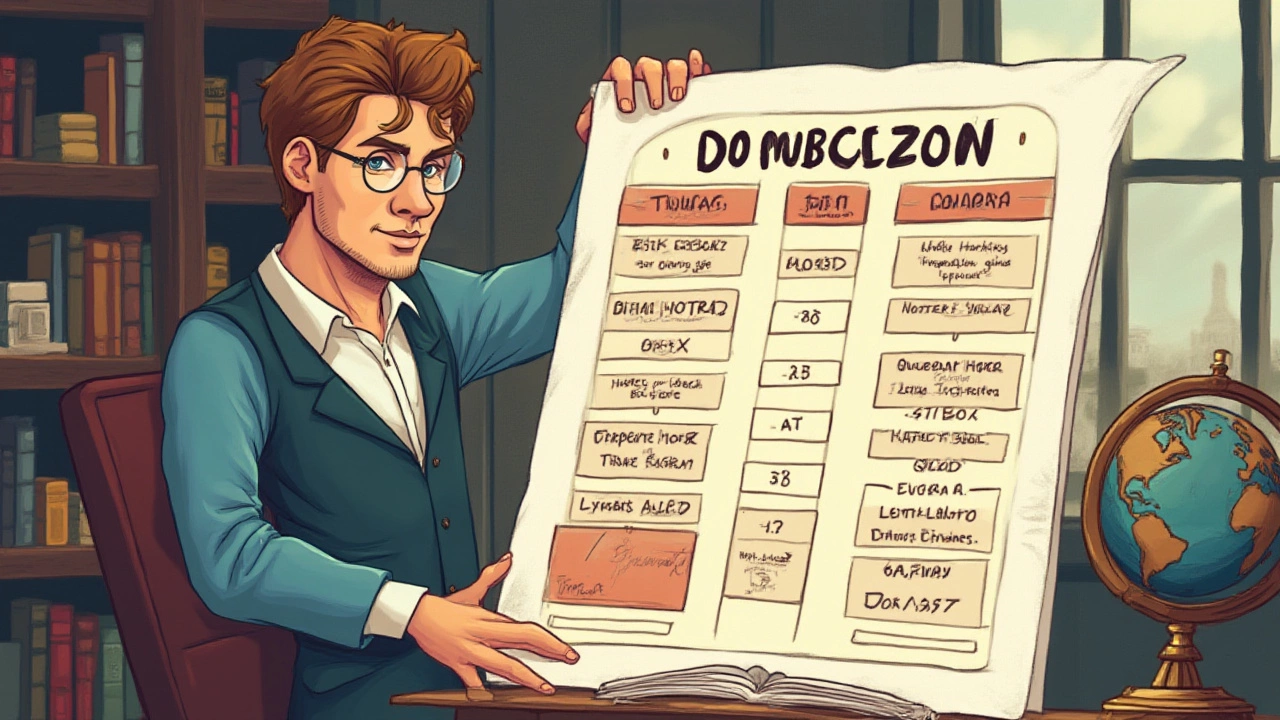Picture this: you’re finally free from work, ready for your next adventure or even just a well-deserved staycation. But hotels aren’t cheap, and choices feel endless. A single night in an average city hotel can cost more than an entire month’s streaming subscription. So how do you beat the algorithms, side-step horrible beds and overpriced breakfast buffets, and actually arrive somewhere that feels worth your cash? Forget those “top ten hotel secrets” blogs with recycled advice—let’s break down a strategy that’ll put you in a great room for the kind of price that lets you spring for room service as a treat (not a shameful splurge).
How Hotel Prices Actually Work
Grasping how hotel pricing works is the first step in nailing a booking you won’t regret. Ever noticed how the same hotel room can be $99 one night and $275 the next for no obvious reason? That’s dynamic pricing—one of the travel industry’s best-kept not-so-secrets. Hotels, just like airlines, hike or drop their rates instantly based on real demand, local events, day of the week, even the weather. Ever tried booking a Vegas room midweek? Steal. Try the Friday a giant tech conference rolls into town? Expect eye-watering prices.
Most travelers don’t realize hotels rely on fancy algorithms that scrape search data, look at lean months ahead, and even what other sites you’re checking. According to a 2024 Skift report, about 72% of hotels globally use revenue management systems tracking 60+ variables to set rates. This means hotel prices are always in motion—and you have to catch them at the right moment.
There’s another twist. Booking windows matter. According to data from Expedia’s annual research, the sweet spot for booking hotels in most U.S. locations is 15–21 days out—closer to the stay than flights, which reward advance planners. Busy cities get booked up faster (hello, New York at Christmas), while small towns and off-season resorts might stay cheap until the week of arrival. “Last-minute deal” is real but comes with risk: you’re gambling both on price and availability.
Weekdays versus weekends is another see-saw. Business hotels in city centers might be cheapest over the weekend when suits go home, while beach resorts spike on Fridays and Saturdays. There are even micro-trends—Tuesday and Wednesday often yield the lowest rates across both direct and comparison sites, thanks to fewer corporate travelers and lower search traffic.
Ever tried to snatch a room during a mega sporting event or holiday weekend? Don’t bother. Prices will be highest, and often there’s a five-night minimum. But here’s a less-known fact: prices can sometimes drop at the very last minute on unsold premium rooms. Apps like HotelTonight specialize in these—though if you’re picky, they’re not always a safe bet. And some hotels hold rooms back from big travel sites to keep for loyal repeat guests or to sell themselves, banking on late walk-ins or desperate last-minute bookers.
Understanding the entire pricing ecosystem helps you worm through booking platforms with confidence, timing your purchase perfectly. You want to think like a local, a business traveler, and a bargain hunter—by doing so, you’ll spot where the savings hide and strike when the time is truly right.
Using the Right Tools and Websites
Let’s cut through the clutter of online booking madness. Not all booking sites are created equal, and using just one is like only checking one aisle in a giant clearance sale. Price comparison is your best weapon, but you’ve got to know which platforms play nicely and which hide the best deals. The giants—Booking.com, Expedia, Agoda—cover a huge chunk of the world’s hotels, but every once in a while, a little guy like Amoma (well, until it went bankrupt) or SnapTravel offers flash deals you won’t see elsewhere.
Don’t skip metasearch aggregators like Google Hotels, Kayak, or Trivago. These sites search dozens of booking platforms and usually highlight the absolute lowest price. Sometimes, a hotel’s own website beats the lot—many chains offer a “best price guarantee” or sweeteners like free breakfast or late checkout if you book direct. According to American Hotel & Lodging Association research from late 2023, nearly 55% of big-brand hotels offer hidden perks for direct bookers, and 30% actually throw in exclusive member-only rates not seen elsewhere.
Price alerts are a beast for those with patience. Tools like Hopper, Skyscanner, or Google Price Tracker will ping you the moment your chosen hotel price drops. It pays to move fast when it happens—rooms at the best rates go quickly.
Here’s something wild: prices can change based on location, your browser, and even how many times you’ve searched (dynamic IP tracking and cached searches let some sites jack up prices if they sense you’re desperate). Try clearing cookies, using incognito mode, or searching from a different device for a reset. VPNs give another boost—change your virtual country and sometimes uncover country-specific deals only locals would see. For example, a Toronto chain hotel might post a lower rate to users booking from Canada than those searching from Los Angeles.
Reward apps are a power move if you’re loyal. Marriott Bonvoy, Hilton Honors, IHG Rewards—they all stack perks for repeat bookings. Free nights, upgrades, and late checkout add real value over time, especially if you stick to one brand.
Package deals aren’t always bargains—but they can be. Sites like Priceline’s “Express Deals” or Expedia’s bundling options cut a deal if you’re flexible on something (like the exact hotel brand or room). They hide the specific property until after you commit, but major chains are often listed. Sometimes, these mystery deals are $20–$50 a night less than booking the same room directly, which is no joke if you’re staying a week.
Don’t forget about cashback portals and discount codes. Rakuten, TopCashback, Honey—activate those extensions before checkout, and you could get a few percent back. Student, AAA, and senior discounts genuinely work, so don’t skip entering them.
Flash sales and secret hotel sales happen randomly—Hotels.com usually emails out a new extra 10% code each month. Signing up (yes, more email spam) can sometimes deliver a massive payoff on a single big trip.

Timing Your Booking Strategically
Poor timing blows more getaway budgets than anything else. Knowing when to book is as important as where. The golden rule: aim for your booking window—the time frame when hotels drop their prices to fill rooms, but before they spike as supply dries up. Generally, that’s two to three weeks out for city hotels, up to five weeks for resorts, and closer for business hotels (since they rarely sell out far in advance). Here’s a kicker: according to a huge dataset from HotelsCombined, booking six months ahead is almost always more expensive than waiting—early birds rarely get the deal on hotels.
The time of week matters. Analysis by CheapHotels.com in mid-2024 revealed Tuesday is the best day to book domestically, while Wednesday works better for overseas hotels. This comes down to cancellations processed post-weekend, and hotels updating unsold inventory early week, meaning fresh discounts drop just as most people’s travel planning slows down.
Off-peak periods provide shockingly good value. A high-end Miami hotel in July—humid, with the ocean like bathwater—can drop to a third of its January price. That dreamy Parisian boutique you eyed up? Visit in November, and prices can sink by 40% compared to cherry blossom season. Best hotel savings often require embracing less-than-Instagrammable weather, but you’ll have cash left over for everything else.
Sometimes price drops happen last-minute, especially if the place is barely half full. But don’t risk it in high-demand periods: festivals, conferences, or school holidays turn bargains into mirages. Watch cancellation policies closely. Free cancellation lets you lock in a decent rate early and keep hunting. If you see something better a week before, cancel and rebook—zero penalty. Travel insiders do this constantly.
Seasonal cycles are another trick. Southern Europe and much of Asia see rates skyrocket in August, but May and October are golden—pleasant weather, few crowds, and gnarly discounts. Same in U.S. ski towns: late March or April brings powder, sunshine, and rates up to 60% cheaper than peak February weekends.
Want a real pro move? Use festivals or major events to your advantage. Yes, main dates cost more, but book the week after, and you’ll see prices plummet. Locals celebrate, then crowds vanish, and hotels panic-sell remaining rooms—often for half what was charged days earlier.
Punching in flexible dates can make a world of difference. A Friday night in Copenhagen might double your cost compared to a Thursday or Sunday. Most booking engines have a “flexible date” view—use it, and watch as those bar graphs point you to the real bargains.
What to Look for Beyond Just the Price
The cheapest hotel isn’t always the best deal. Ever saved $50 a night and then spent $80 on cabs because your place was 35 minutes from anything worthwhile? Location matters—a lot. Pull up Google Maps, check exactly where your hotel is, and what’s around it. This works both ways; sometimes, paying $10 more to be central saves hours and cash on transport.
Read reviews like you’re a detective, not a casual browser. Scan both positive and negative comments from the last six months—older reviews can be totally irrelevant after a remodel or new management. Watch out for “too good to be true” scores—if a hotel is suspiciously cheap and has dozens of glowing, identical reviews, it might be stuffing fake ones. Real experiences usually mention names of staff, specific rooms, or local quirks.
Check what’s actually included. Free breakfast? That’s $10–$20 per day you don’t have to shell out. Is Wi-Fi complimentary, or a $15 rip-off? What about parking, pool access, shuttle service? The so-called “resort fee” (aka “facility fee” or “amenity fee”) found in U.S. hotels averages $28 a night as of May 2025. A room $20 cheaper than the next might actually cost you more once these stealth charges stack up.
Safety should never be a throwaway. Look for security reviews and location stats. Is the front desk staffed 24/7? Are there cameras, secure keycards, and safe surroundings? Research crime maps for the neighborhood if you’re traveling somewhere new. This is especially key if you’re traveling solo or arriving late at night.
Little perks add up: free bottled water, welcome snacks, early check-in, late check-out. Even things like blackout curtains or noise-blocking windows make a big difference after a red-eye or a big night out.

Maximizing Value: Loyalty, Upgrades, and Hidden Perks
If you travel more than once a year, join loyalty programs—they’re free and give you a head start on exclusive discounts. Every major chain now offers points, and many let you convert airline miles for bonus stays. Hilton Honors, for instance, lets you pool points with friends and family, meaning you can team up for a free night even if you don’t travel much.
Signing up for email lists can unlock “member-only” rates unavailable elsewhere. Marriott, for example, regularly drops flash sales to its email subscribers, sometimes offering half-price nights at unsold properties.
Don’t be shy about asking for an upgrade at check-in, especially during off-peak hours (mid-afternoon or late night when there’s less bustle). Smile, be polite, mention a special occasion if you’ve got one. According to a 2023 survey shared by Travel Weekly, nearly 41% of desk agents said they’ve gifted complimentary upgrades in the past month simply because a guest asked nicely—and was the first to do so.
Birthday coming up? Honeymoon? Graduation trip? Tell the manager ahead of your arrival. Hotels compete for loyalty, and sometimes a note in your booking leads to that coveted upgrade or a surprise bottle of bubbly.
Stack your benefits. Book through a cashback portal, using a rewards credit card with extra hotel points, and log the stay with your loyalty account. A $200 stay can sometimes return $20–$30 back in combined points, perks, or cashback—real money for the next booking.
Insider tip: sometimes it’s worth calling the hotel directly after finding your best deal online. Explain what you found and ask if they can match or beat the price—they might toss in free breakfast, parking, or a better room just for booking direct. In fact, a 2024 SiteMinder study found 18% of travelers scored an upgrade or extra by phoning direct after finding a deal online.
Check your wallet too. Premium credit cards (like Chase Sapphire Preferred or Amex Platinum) come with hotel perks: free room upgrades, late checkout, and sometimes status matches just for booking through their travel portal.
Here’s a quick breakdown of typical hotel add-ons you might snag with a savvy approach:
| Perk | Estimated Value per Night | Notes |
|---|---|---|
| Free Breakfast | $10–$40 | Varies by location and category |
| Room Upgrade | $20–$75 | Often larger room or better view |
| Early/Late Checkout | $15–$50 | Makes a big difference for late flights |
| Parking Waiver | $10–$35 | Especially valuable in city centers |
| Free Cancellation | Priceless | Book early and re-hunt for deals |
If you’ve been burned by a bad stay or had an exceptional one, always write a review—detailed, fair, and honest. Many hotels now reward repeat positive reviewers with direct perks, discounts, or even free nights as a thank you for advocating.
The best hotel for the best price isn’t a unicorn. It just takes curiosity, a bit of timing finesse, the right tools, and a willingness to work the system a little. When you find yourself kicking back in a bigger, brighter room than you expected—mid-lush towels, sun pouring in, all without digging too deep into your wallet—you’ll know you played it right.

